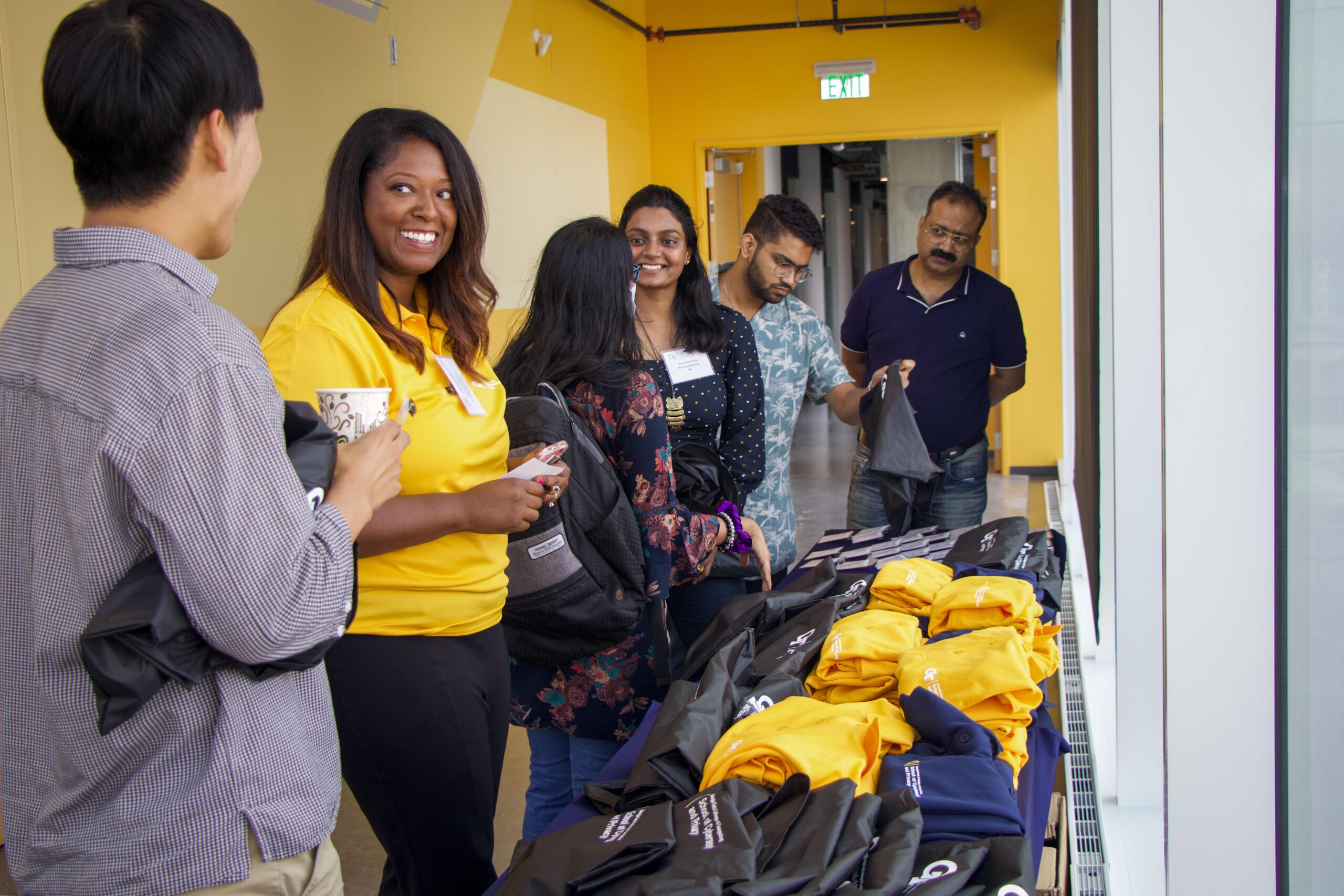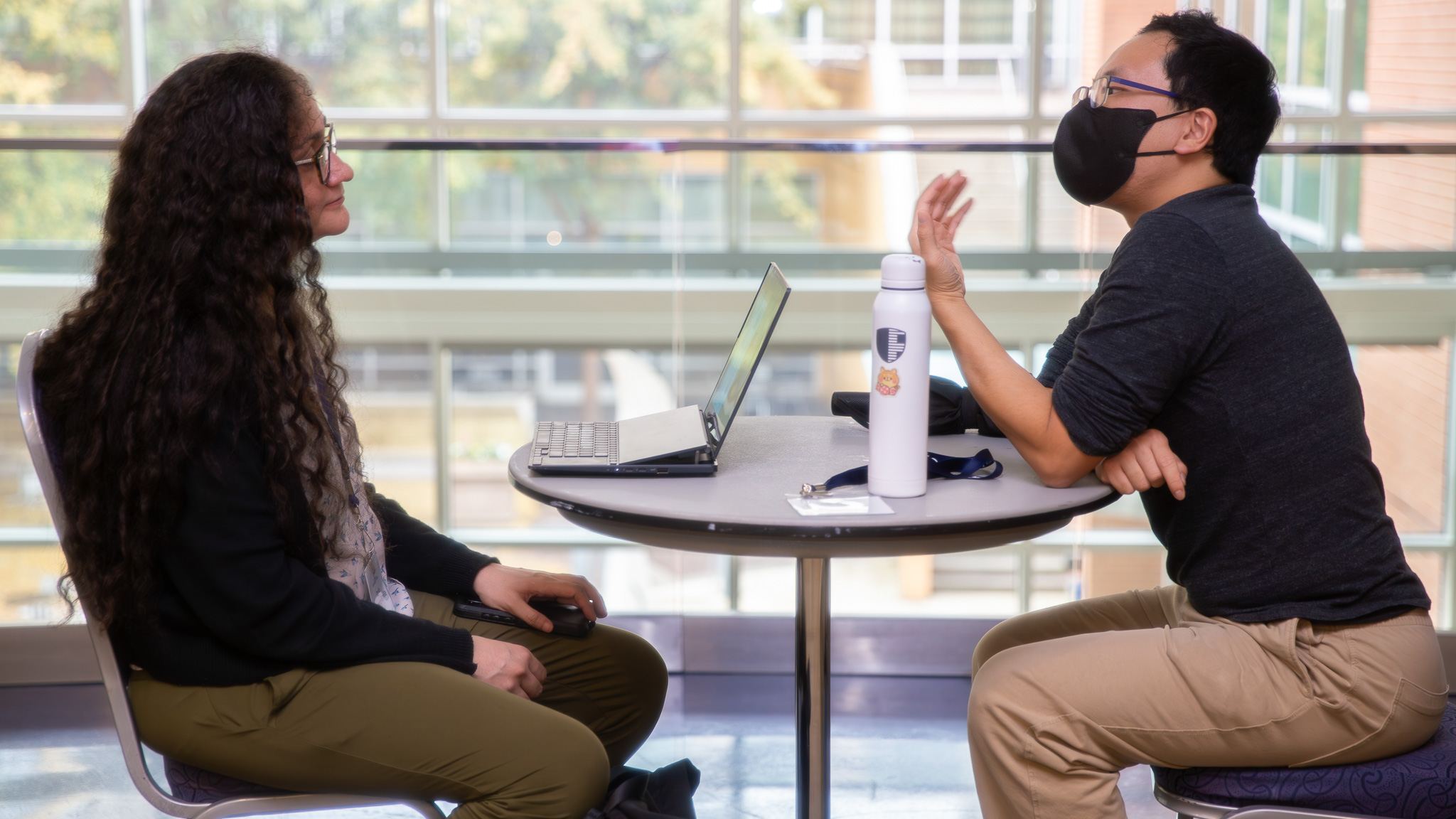PIT in Practice: Georgia Tech
Safe and secure elections require interdisciplinary collaboration
As nearly half of the world’s voting population heads to the polls this year, technology’s impact on elections will be front and center.
It’s a complex issue that is, unfortunately, awash in misunderstanding and misinformation. What’s more, according to Richard DeMillo, professor and founder of the School of Cybersecurity and Privacy (SCP) at Georgia Tech, there is a tendency in technology fields to hyperfocus on technical problems at the expense of complex social realities. “There are famous mathematicians who trained their students to not worry about the real world,” DeMillo says. “But the real world has a way of intruding.”
“There are famous mathematicians who trained their students to not worry about the real world,” DeMillo says. “But the real world has a way of intruding.”
Richard DeMillo, Professor and Founder of the School of Cybersecurity and Privacy, Georgia Tech

As a new dean at Georgia Tech in the early 2000s, DeMillo saw voting technology burst into national headlines after the highly contested presidential election between George W. Bush and Al Gore. Congress authorized billions of dollars for states to purchase voting machines, with little to no oversight, and Georgia’s secretary of state was one of the biggest spenders of these federal funds in an attempt to create what DeMillo remembers as “an unambiguously unbiased way of voting.” DeMillo and his cybersecurity colleagues at Georgia Tech put this idea to the test. “It didn’t take much to hack a voting machine in 2002,” he says.
DeMillo has since developed the Safe and Secure Elections research group, an interdisciplinary team from computer science, systems engineering, cognitive science, and international affairs that works on election security in the U.S. and abroad. In 2020, the team created tools to help Georgia officials safely and efficiently administer local elections during the COVID-19 pandemic, and plans for 2024 are underway.
Are you doing PIT + Elections work this year?
The Safe and Secure Elections research group is a natural fit at Georgia Tech, where interdisciplinary public interest technology programs have flourished through research, teaching, curriculum development, and community partnerships. “We were delighted to be part of the early visioning discussions with the Ford Foundation and New America as they sought to define and develop the field of public interest technology,” says Ellen Zegura, the PIT-UN Designee at Georgia Tech.
Zegura led Georgia Tech’s first PIT-UN grant, building a community of practice with nearby Georgia State University to develop interdisciplinary PIT projects to serve the region. 20 researchers from an array of fields from computer science to social work came together to address persistent challenges like public health for LGBTQ+ communities and improving public safety and justice. Six more Network Challenge-funded projects followed at Georgia Tech, including the Inclusive Tech Entrepreneurship Program (College of Design); a community partnership to create models for affordable, sustainable housing (School of Architecture); and DataWorks, a startup that trains young people from communities underrepresented in technology to provide data services to local businesses, nonprofits, and government organizations (College of Computing).
Addressing the Social & the Technical in Elections
Since 2006, DeMillo and his students had been working with the Carter Center, a Georgia-based democracy organization, on election observation in Venezuela, the Philippines, and other countries with newer or troubled election infrastructure. In Ethiopia, Georgia Tech built a tool to help civil society actors flag misinformation and hate speech on Facebook for downranking or removal.
Soon, these teams were considering how to support election integrity at home. “A lot of the same issues we saw in other countries came back to the U.S.” during the 2016 and 2020 U.S. presidential elections, DeMillo says.

Amid concerns of foreign meddling in the 2016 election, many states faced legal challenges to voting machines. DeMillo set out to learn how technical experts could inform judges presiding over these cases. With help from law school colleagues, he submitted an amicus brief in the case of Curling v. Raffensberger, which questioned the integrity of Georgia’s electronic voting machines. The judge ruled that the voting machines must be phased out, citing tests conducted by DeMillo and his colleagues that exposed the machines’ vulnerabilities.

Elections: a “Sweet Spot Problem” for PIT-UN
The Safe and Secure Elections research group has grown since 2020 by focusing on recruiting new team members with a strong interest in the challenge regardless of discipline, bringing in practitioners from across cybersecurity, policy, international affairs, and political science.
The group is identifying focus areas and projects for 2024. DeMillo believes that while the biggest challenge he sees — mis- and disinformation about voting — has technical components, it is equally social in nature. He says it is hard to get an accurate read on the security of voting machines because of so much “noise in the discourse.”

Fulton County, one of the largest in the country, is already inundated with generative AI content about the upcoming elections. The general public and election officials need tools to identify, flag, and correct misleading content. DeMillo predicts that, like the surge in voting machines in the early 2000s, “people will likely throw money at simplistic solutions.”
He sees a big opportunity for PIT-UN members to develop interventions, for this year’s elections and beyond. “It’s not clear what, at the local level, you can do to handle mis- and disinformation,” he says. “This is a sweet spot problem for PIT-UN, as it is equal parts technical and social. It involves AI, communications, sociology, psychology, and more.”